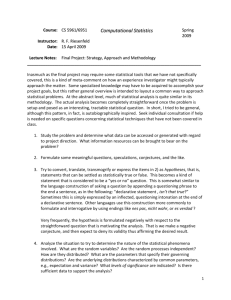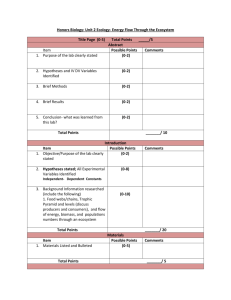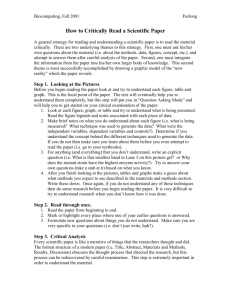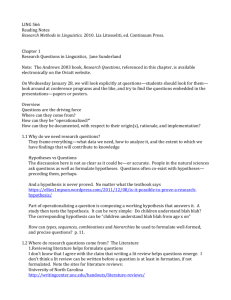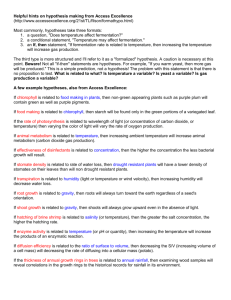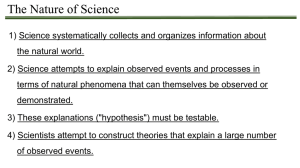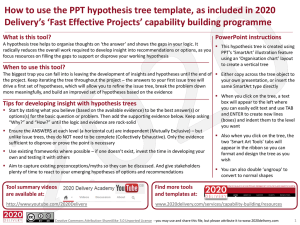Hypothesis Formulation
advertisement
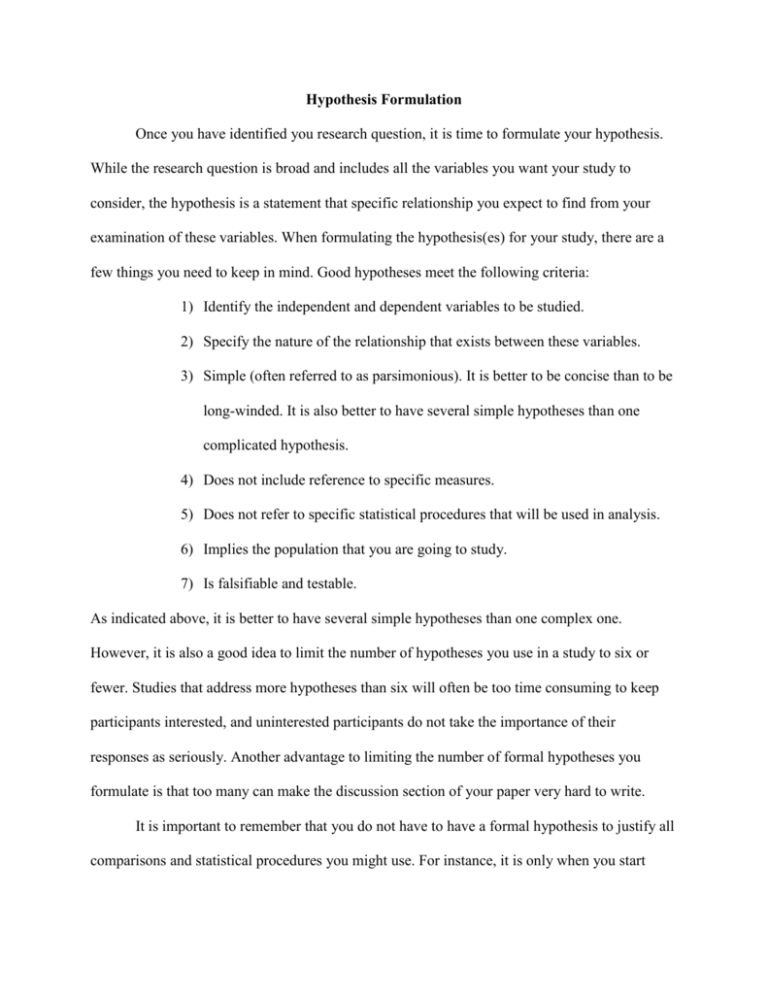
Hypothesis Formulation Once you have identified you research question, it is time to formulate your hypothesis. While the research question is broad and includes all the variables you want your study to consider, the hypothesis is a statement that specific relationship you expect to find from your examination of these variables. When formulating the hypothesis(es) for your study, there are a few things you need to keep in mind. Good hypotheses meet the following criteria: 1) Identify the independent and dependent variables to be studied. 2) Specify the nature of the relationship that exists between these variables. 3) Simple (often referred to as parsimonious). It is better to be concise than to be long-winded. It is also better to have several simple hypotheses than one complicated hypothesis. 4) Does not include reference to specific measures. 5) Does not refer to specific statistical procedures that will be used in analysis. 6) Implies the population that you are going to study. 7) Is falsifiable and testable. As indicated above, it is better to have several simple hypotheses than one complex one. However, it is also a good idea to limit the number of hypotheses you use in a study to six or fewer. Studies that address more hypotheses than six will often be too time consuming to keep participants interested, and uninterested participants do not take the importance of their responses as seriously. Another advantage to limiting the number of formal hypotheses you formulate is that too many can make the discussion section of your paper very hard to write. It is important to remember that you do not have to have a formal hypothesis to justify all comparisons and statistical procedures you might use. For instance, it is only when you start doing exploratory analysis of your data that you realize that gender is an influencing factor. You do not have to back up and write a hypothesis that addresses this finding. In fact, it is better in most cases to not do this. You can report any statistical findings you feel are relevant, whether or not you have a hypothesis that addressed them. The final criterion listed above warrants additional mention. A good hypothesis is not only testable, that is, something you can actually test for in your study, but is must also be falsifiable. It is tempting to ignore this requirement, especially as a new researcher. We want so badly to find great things, and for our study to turn out exactly as we expect it to, that we tend to ignore the possibility that we don’t know everything and that no prediction is failsafe when it comes to humans. Try to keep in mind that all research is relevant. Whether or not your findings are what you expect, you will find something. Believe it or not, failing to find group differences can be just as important as finding expected group differences. In fact, studies that return results in opposition to what we were hoping for, or believed would logically occur, often lead to many more great studies than we could have hoped for. After all, it could be great for the findings of your current research to act as a guiding principal to your future research… it is likely that this would require less work in terms of literature review, as you would always be familiar with at least a portion of the literature that is relevant to your latest study!

